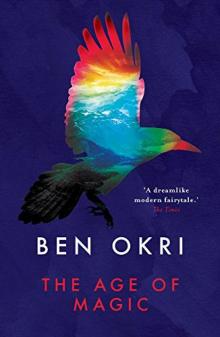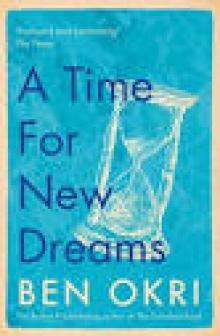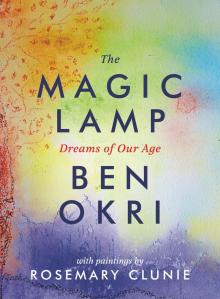Stars of the New Curfew Read online
Page 6
‘What’s the matter’ he asked, prising her fingers from round his neck, and urging his hand up her wrapper, moving gently up her legs.
She kneed him in the ribs and for a moment he saw the white flash of her underclothes. The knee hurt him and he was about to lash out at her when he noticed the curiously vacant expression on her face, as if she were completely oblivious of what he might do to her.
So he tried the gentle approach. He asked about her mother, her job (she had been made redundant; he knew this), and about her life in general. She remained distant. He felt his way up her again, holding his breath, as if his breathing might, for some reason, make her change her mind. He fingered aside her underclothes and played around the lips of her interiors. She was not moist. Unaccountably, he became aware of the planes droning overhead. They seemed to be flying lower and lower. When it finally occurred to him that she was dry he stopped.
‘What’s wrong?’ he asked.
He was afraid. He was scared that she was completely beyond being aroused by him. He tried again. She lay still, impassive. She gave him a sidelong look and then she got up.
‘So you won’t give me the money?’
‘Tomorrow.’
‘Your tomorrow never ends.’
‘Tomorrow.’
‘I’m going to see my sister.’
She picked up her things. He tried to stop her. He held her from behind, kissing her fleshy neck, and tried to get her back on the bed. He eventually did. He struggled over her and tried to pin her down. Then he tried to loosen his trousers and tear off her wrapper. She kept rocking him, throwing him off-balance. He struggled and sweat dripped from him onto her bared breasts. His sweat was red and it occurred to him that he was sweating blood. Suddenly, making a powerful noise, and with surprising energy, she tossed him off her. Then she got up, opened the door wide, and stood in the middle of the room, her hands on her hips. He collapsed in frustration and watched her.
‘I’m going!’ she announced.
He got out of bed. She went out of the room, clicking her heels. He followed her up the street, past the brothel, the mechanic’s shed, the garbage heaps, and they said nothing to one another as they went. The planes flew in the air, circling the city. The adults and the children were bored with their interminable displays.
‘How long are they going to celebrate the thief’s birthday?’ she said, bitterly.
‘Why do you give me so much trouble, eh?’
She looked at him as if he were a complete stranger. A plane, flying low, cast a swift shadow over her. She looked up, then looked at him again. Her lips were curled, pressed tight, as if speech were an act performed under duress.
‘Didn’t you hear what the soldiers did to me?’
Emokhai was confused.
‘What did they do to you?’
‘Didn’t you hear? Everyone heard.’
Her emphasis changed the slant of what he had heard. Bewildered, he said:
‘I heard.’
‘Do you think I am made of wood?’
He said nothing. He was scared. He wanted to go back. He suddenly didn’t want to be seen with her. She looked at him without warmth and in her eyes he saw little networks of red and green blood-vessels.
‘I’ll be seeing you,’ she said.
And as she turned he noticed a plane free-falling in the air. The engine had been stalled and as the plane somersaulted no one noticed that its engine had, for once, failed. He watched the plane as it fell, mesmerized by the daring joke of it all. Then the engine started, the plane swooped and described an arc. Emokhai turned to reply to Dede and when he saw, out of the corner of his eyes, the plane crash on the thatch houses of the ghetto, he didn’t comprehend what he had witnessed. He heard the momentous crash in retrospect. Dede walked on, oblivious to the thunderous sounds of metal on collapsing houses. Then a massive cloud of red dust, plaster and smoke obscured her as she disappeared round a corner. When Emokhai looked he saw the rear of the plane jutting out from the top of devastated huts and bungalows. In the sky the other planes flew softly in formation, like birds in August, like cattle egrets at the beginning of harmattan.
4
Later in the evening troops of soldiers came and woke up the inhabitants of the street. They had come to remove the plane and bury their companion. The soldiers had a special mania that evening. They rounded up the people of the street, roughening them up where necessary. The inhabitants stood with their children and their motley property around them, refugees in their own city. It was a while before the fire-service arrived. The lights were cut in the area. The soldiers went about the business of evacuation as if the street were a war-zone. Mama Joe, unable to find her son, wailed up and down the place.
On television the governor, looking both serene and pensive, flanked on one side by the Chief Justice of the state, and on the other side by a bishop, unveiled another statue of himself before a large crowd near Queen Mary’s Memorial Hospital. The statue, made of bronze-ore and smelted in Rome, did not look like the governor at all. After the unveiling, the crowd burst into cheering. It was rumoured that he came to the street to see the plane accident. And if no one saw him, if he couldn’t do anything about the unfortunate incident, it was because of his chief opponent, the chaos which he had created in order to rule. The plane stayed stuck all night. And because of the evacuation, because of the mood of the soldiers, Emokhai decided to find somewhere else to sleep.
That night, leaving his property behind like one who insists on starting anew, and with no dreams of succeeding, he sought the woman through the city. He sought her in the bars and brothels where they said she could be found drinking, her protuberant stomach rocking in forced laughter. He didn’t find her. He decided to seek Marjomi. At the bar the wife of the manager, a wizened woman, told him what had happened.
She told him about Dede, and how on her way home soldiers had descended on her. When she saw them coming at her she cut herself in the neck with a razor. The story had reached them in the bar and Marjomi, feverish and tormented, had screamed that they should take blood from him. They were in the same blood group. They had put Marjomi in a taxi and had him rushed to the hospital. It was his second time that day.
Emokhai set off immediately. When he got to the hospital he was met by an oversexed-looking nurse, who seemed bored by everything under the sun, and who wouldn’t allow him in to see Dede and Marjomi. He sat in the waiting room for what seemed like days. He slept, woke up, and decided to go for a walk. He went up the illustrious streets, where expensive hotels overlooked vast lawns, and where fields of African roses hid the luxuriant golf courses. He made his way to the forest and went to the watch-shed in the area where the governor was believed to have his well-kept marijuana farms. The watch-night was a one-eyed fellow with a weather-beaten face. He eyed Emokhai curiously and said:
‘What do you want?’
‘I want to buy some herbs.’
‘What herbs?’
‘The ones that give good dreams in broad daylight.’
The watch-night smiled.
‘As you see me,’ he said, ‘I have two degrees. I am the most over-qualified watchman in the world. But do I grumble?’
‘No,’ Emokhai said.
‘I sit here from morning till night, dreaming I watch over these farms. I close my eyes to all the things that are going on. But do I complain?’
‘No.’
‘Have you come here before?’
‘No.’
‘Sit down then.’
Emokhai sat on a stool. The old man, his one eye wise and serene, began to talk. He talked for no particular reason. He talked as if Emokhai were an old friend who had just stepped in from the night. The old man talked about the governor’s poultry farm, about the hotel where the most dazzling collection of cars brought invisible guests to parties which rocked the city every night. He talked about those who had been shot, about the unmarked graves of the state’s vanished enemies, and about the farms created and
protected by the governor’s money. He said:
‘My son, we are living in wicked times. I have lived out my life. Now I just dream.’
He was silent for a while.
‘What was it you wanted?’
‘Some herbs.’
‘Oh yes.’
He reached for a bundle in a corner of the shed. He measured a quantity of leaves. He said:
‘If you’re caught it’s life imprisonment, you know.’
‘I know.’
Emokhai took the leaves wrapped in a piece of newspaper, paid the old man, and left.
When he got back to the hospital there was another nurse on duty. She said he could see Dede on the condition that he didn’t wake her. Dede was in bed, still in a coma, surrounded by tubes. He watched her breathing gently and he wept. Marjomi was nowhere around. The nurse said he had gone. Emokhai stayed watching over Dede till the nurses asked him to leave. He didn’t want to leave so they had to get the watch-nights to come and throw him out.
An hour later Emokhai left the hospital. He had no idea where he was going to spend the night. He roamed the darkening city, his stomach grumbling. He wandered down streets littered with celebrations of the governor’s birthday. He went from bar to bar looking for Marjomi. Eventually he went to Marjomi’s room in the ghetto, in the depths of the city. When he got there he found the door wide open. Marjomi was asleep on the bed, with his shoes still on. Emokhai shut the door, lit a candle, and watched over his sleeping friend. Emokhai marvelled at the gentle ferocity of his spirit. Marjomi slept deeply, his lips pursed, his face completely devoid of its tortured expressions. He slept like one for whom sleep was invented.
Emokhai waited patiently for his friend to wake up. He leafed through the confusion of books scattered about the room. There were books on magic, alchemy, letter-writing, books on fortune-telling, on how to communicate with spirits, a complete guide to palmistry, and the sixteen lessons of a correspondence course called Turning Experience Into Gold.
Marjomi woke up suddenly. He saw Emokhai sitting solidly on the chair and he smiled. They ate beans and garri soaked in water, without exchanging a word. When they finished Marjomi lit a mosquito coil and they went to the housefront with his transistor radio. Listening to music, Emokhai rolled up, while Marjomi watched the sky. They smoked the marijuana from the governor’s secret farms quietly into the night of the red city.
STARS OF THE NEW CURFEW
I AM NOT sure when my nightmares began. Sometimes I feel certain that it wasn’t when I left the town of W., where I attended secondary school. There were no jobs available then for people of my qualification and as my parents had died during the war I had no one to sponsor my further education. So I did a correspondence course in salesmanship and joined an insurance firm. It folded two months after I began working with them. With no options open to me I had no choice but to earn my living by selling rather dubious locally made medicines at various markets and on the molue buses that career all over Lagos.
At first I did not like the job. The money was insecure. I did not believe in the medicines and most certainly did not use them myself. I felt it was wrong of me to persuade people to buy them. But when I got thrown out of the room I rented, and after I had spent six weeks sleeping under the infamous Iddo Bridge with goats and reticent goatherds, I began to change my mind. No one bothered that I suffered and starved. Why should anyone complain if they were stupid enough to buy the medicines I sold them? Do not believe it when they say that suffering improves you. To some extent it might do. But beyond that it sobers you, hardens you.
The Nightmare of Salesmen
I began to sell medicines with a special vengeance. I devised all kinds of methods for attracting people’s attention. I dressed like a clown. I set off fireworks. I developed the most sensational dances and songs to accompany my sales talks. I spent all my energy thinking up new tricks. I practised always. I became so obsessed that I would, in my spare time, take to selling people anything – from empty matchboxes to burnt-out candles. The credulity of people amazed me. I seemed to have stumbled upon a limitless area of possibilities. The prelude to my talks became so fantastic that crowds gathered around me whenever I performed. People would stop on their way to work, market-women with impossible loads on their heads would pause for several minutes; children late for school would be later still in the time they spent watching me.
Sometimes I think I missed my real vocation, but I am not wholly sure what it could have been. Maybe in another society, in a different time, I might have been well regarded as an actor. It’s hard to tell. Anyway, my performances became so successful that people would stop and watch me, but they didn’t buy very much of the medicine I was supposed to be selling. It was rather odd. My comrades in sales, whom I thought were jealous of my success, used to tease me by saying that I was an actor, an artist, but not a salesman. For a long time I missed the real point of their distinction. It was only when I was threatened with the sack for selling so few medicines that I began to realize that there was something wrong with my methods.
My other comrades, for example, put a third as much effort into their performances but sold three times as many medicines. It was a bit of a mystery. One of them, whom I suspected of being the most jealous of the lot, and whom I also suspected instigated the threat of sacking me, would begin his talk by speaking in an odd nasal accent. He sounded like the voices of masquerades. Sometimes he would hold a flag up in the air, wave it, and would proceed with simple jokes about the flag, would get passers-by laughing, and before their laughter got too far he would switch to a hard selling of the medicines. It always worked. Another comrade, I discovered, used the dreadful device of having lots of friends amongst the passers-by who would come up and, praising the medicines, purchase slightly unreasonable quantities. People always took it as a good sign and this counted more in terms of persuasion than all my circus tricks put together.
A hungry man never does things by halves. I made sure I got better acquainted with my colleagues. I flattered them endlessly. I learned their surprisingly simple methods and soon began to execute them myself. But I didn’t execute them with moderation. I overdid them. I strained at them. I got too many acquaintances, whom I had to pay, to be amongst the passers-by. Then I began to combine my old tricks with the new ones. I became known as a salesman. Whenever I started my acts, people soon began to complete my opening lines. For a while I did well. I moved into better accommodation – two rooms in the ghetto. I bought myself good clothes. I began to contemplate opening my own business, manufacturing my own medicines at home, and keeping the profits for myself. I made plans. Slowly I put them into action. I worked harder. But it was only after some time had passed, when people were beginning to get used to my methods, when some of my accomplices had been unmasked and beaten by duped market-women, that I started to realize I was becoming a victim of my real success. The worst thing that happened was not that some of my accomplices, who were meant to mingle with the crowds and be as ordinary as possible, turned out to be pickpockets who capitalized on my ability to draw people. That was bad enough, because after they had been caught and flogged they lied that they were working for me. People immediately assumed that I was the chief pickpocket, the main organizer. This, however, didn’t happen too often, because I got rid of the bad accomplices. But for a time when I appeared the people who remembered screamed abuse at me and sometimes chased me from that section of the market. Mercifully, there are plenty of people in the world and human beings are notorious for having such a short memory.
This meant that I had to keep changing the dubious companies I worked for. During that time I sold medicines for children’s diseases, I sold ointment, malaria tablets, phials for yellow fever and dysentery, and books. I kept my methods. It was when I moved into the business of selling ringworm medicines that my real troubles began. Firstly, it shocked me how many people suffered from ringworm, threadworm, rashes, and eczema. The sufferers were all poor. What stunned me ho
wever was that I had been selling fake ringworm medicines which actually multiplied ringworm. A woman came to me screaming one day at the market while I was in the second stage of my sales talk. She bared her back and said she had only two rashes of ringworm before and now she was covered in them. Her face was a lacework, a net, a concentric rash of ringworm. I kept trying to get away from her. She frightened me. She looked misbegotten and deformed.
Three days later other people, faces veiled with hats, came to me and cursed me for the rashes that had broken out over their bodies. It was quite scary seeing a horde of worm-eaten people pouring at me every day at work. It got so bad that when people came forward to buy the medicines I often thought they were about to attack me. Then one day an awful thing happened. I had been selling my medicines rather successfully in the market when a woman brought her three children to me. The woman wore a yellow head-tie over a tattered wig. The children looked so wretched, with their swollen stomachs that it was clear they had little to eat, and what they did eat was devoid of nourishment. The money that could have been spent on feeding them a little better had been used to buy medicines. The children were covered in welts so big and red, so obscene, that I couldn’t possibly believe it was ringworm. It seemed more like ringsnake. I think I screamed when I saw the magnified welts on their pale, thin bodies. The woman didn’t shout at me or curse me. Her eyes held a helpless expression. The children, scratching their necks, looked at me with sad eyes as if they expected me to perform a miracle on them. It was their expectancy which really terrified me. I backed off and ran away, leaving my things behind. I never returned to that market again to sell anything.

 The Age of Magic
The Age of Magic Infinite Riches
Infinite Riches Songs of Enchantment
Songs of Enchantment Tales of Freedom
Tales of Freedom Dangerous Love
Dangerous Love Starbook
Starbook The Famished Road
The Famished Road Astonishing the Gods
Astonishing the Gods A Fire in My Head
A Fire in My Head The Freedom Artist
The Freedom Artist The Comic Destiny
The Comic Destiny A Way of Being Free
A Way of Being Free Prayer for the Living
Prayer for the Living A Time for New Dreams
A Time for New Dreams The Magic Lamp
The Magic Lamp In Arcadia
In Arcadia